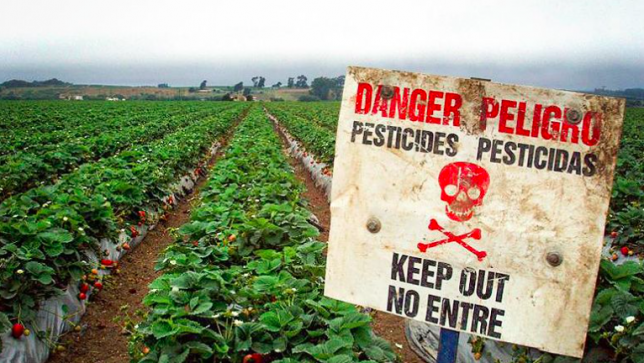Sustainable Food - June 18, 2019
Poisoning Paradise: Journey to the seemingly idyllic world of Native Hawaiians, where communities are surrounded by experimental test sites and pesticides sprayed upwind of their neighborhoods. Poisoning Paradise details the ongoing struggle to advance bold new legislation governing the fate of their island home.
Firstly, Sustainable Pulse and our readers would like to thank you for taking on the task of recording the events in what is known as pesticide ‘ground zero’ – Hawai‘i.
Can you tell us what inspired you to make Poisoning Paradise and why the ongoing efforts to control the use of pesticides in Hawai‘i are so important to you?
I live part time in Hawai‘i and was raised there as a child, so in essence, this film is my love letter to Hawai‘i – a place I love, with people I love. My neighbor and producing partner, Teresa Tico, wanted to make a film about Bill 2491 called “Pass The Bill.” I agreed to fund the project and it then grew exponentially into the film Poisoning Paradise, which has a much broader reach and message than the original concept. The documentary is a time capsule of a grassroots movement that sought to ask for disclosure of what was being sprayed, when, and where: to initiate buffer zones around schools, homes, and environmentally sensitive shorelines; and to ask for an environmental impact study, which would provide scientific data as to how these chemicals affect our land, our water, our air, our food, our health, our oceans, our wildlife, and other natural resources in the Hawaiian islands.
Are there any lessons from Hawai‘i that people can learn globally, regarding how to stand up to the large pesticide corporations and thus to protect their rights?
The day of plausible deniability is over—lawmakers can’t say that they didn’t know that these chemicals were dangerous—they can’t say that they didn’t know what chemicals are being used. Support lawmakers to help them make necessary changes. The business model of large chemical companies is to maintain a food and agricultural system that is reliant on their toxic pesticides.
Everyone should be pushing for counties to be able to regulate from within when it comes to pesticides. It’s clear that federal regulatory agencies are not doing enough to protect people and the environment from toxic pesticides. Hawai‘i, California, and New York have passed legislation banning Chlorpyrifos because of the damage it causes children’s brains. Almost 10 million visited Hawai‘i last year. Over 1.3 million people went to Kaua‘i. The visitor industry has a responsibility to inform visitors who are going to be in the areas where these chemicals are used.
Poisoning Paradise is a landmark documentary and has reach far beyond Hawai‘i – what do you hope is the result of your work both locally in Hawai‘i and Globally?
We hope to reach a broad audience with our film. The recent rulings against Monsanto make this discussion relevant and real. We want to reach anyone that is interested in the food movement, sustainable agriculture, and anyone who is interested in protecting their land, their air, and their water. We need to move away from Pesticide Heavy Agriculture, and put resources into recreating Regenerative Diversified Agriculture systems. We must remove toxic pesticides and fertilizers from the equation, protecting our communities, our environment and the farm workers themselves; drastically reduce or eliminate agriculture’s reliance on fossil fuels (including petroleum-based pesticides and fertilizers), build soil that sequesters carbon, slowing down climate change, and build soil that captures and holds water, eliminating destructive sediment runoff while also making farms more drought tolerant.
We must educate ourselves and take action, and we must be relentless in our pursuit of protecting the environment, our health, and the health of our children.
How has Poisoning Paradise been received by international audiences so far?
Poisoning Paradise has been warmly received at film festivals abroad, including the Bologna Film Festival in Italy, the Festival Internacional De Cine Medioambiental de Canarias and the Valladolid International Film Festival in Spain, the Be Epic! London International Film Festival, the Manchester Film Festival in the United Kingdom, the Festival Internacional de Cine en Guadalajara in Mexico, the Galway Film Fleadh in Ireland, and the International Film Festival and Forum on Human Rights in Geneva, Switzerland. We’re pleased to have received over a dozen awards for our film, both domestically and abroad, including many for Best Documentary.
How can our readers around the world watch Poisoning Paradise – when will it be fully released?
Poisoning Paradise is now available in the United States on iTunes, Amazon, Google Play, YouTube, and more. We are currently working with Cinema Libre to bring it to the international market.
Are you thinking of making any follow-up documentaries on the same subject, as this issue seems to be getting more and more international attention with the rise in interest about the risks of glyphosate herbicides?
There is lots of interest in and potential for a follow-up documentary film.

